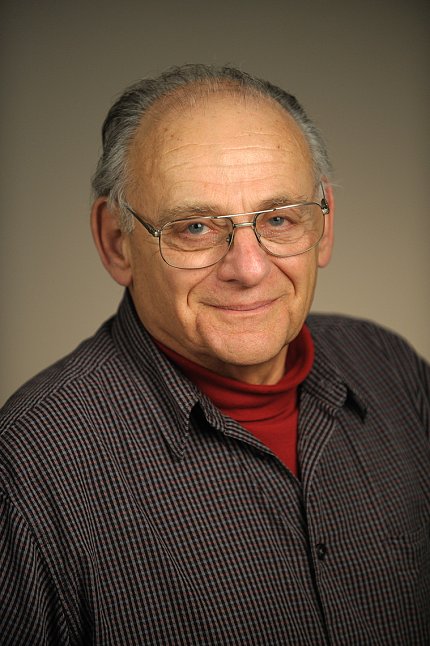NINDS Remembers Scientist Emeritus Gainer

Dr. Harold “Hal” Gainer, scientist emeritus at the National Institute of Neurological Disorders and Stroke (NINDS), and an esteemed and longstanding leader in the NIH Intramural Research Program, died in November.
Gainer was an internationally recognized figure in the study of peptidergic neurons (brain cells characterized by their expression of neuropeptides) and a leader among researchers focused on the molecular, cellular and integrative biology of magnocellular neurons of the hypothalamus.
Throughout the years, his studies led to a number of scientific “firsts” including the first intracellular recordings of peptide regulation of neural activity, the identification of the oxytocin (Oxt) and vasopressin (Avp) peptide precursor proteins and the demonstration that the post-translational processing mechanisms that lead to the production of the biologically active peptides occur within secretory vesicles.
He will also be remembered for editing the first book on neuropeptides, Peptides in Neurobiology, which was subsequently translated and used in China as a graduate-level textbook.
“Hal’s scientific achievements, mentoring legacy and contributions to NINDS and NIH are described as outstanding by those who knew him,” said NINDS Director Dr. Walter Koroshetz. “He was a great supporter of the institute and a champion of diversity. The NIH community mourns his passing. We all will miss him.”
Gainer earned his undergraduate degree in chemistry from City College of New York and his Ph.D. in physiology and biochemistry from the University of California, Berkeley. While in California, he briefly served as a postdoctoral fellow at Berkeley and as an instructor in physiology at the University of California, San Francisco. He furthered his postdoctoral work on the electrophysiology of muscle and synapses at Columbia University College of Physicians and Surgeons in the laboratory of Dr. Harry Grundfest.
From New York, Gainer moved to a faculty position at the University of Maryland, where his research focused on mechanisms of sound production in marine animals and on the role of calcium in excitation-contraction coupling. He served as an adjunct/visiting professor at UMd., George Washington University and Tel-Aviv University in Israel, and as a summer investigator at the Marine Biological Laboratory in Woods Hole, Mass.
Gainer first joined NIH in 1969 as a research physiologist at the Eunice Kennedy Shriver National Institute of Child Health and Human Development (NICHD). In 1983, he became chief of NICHD’s Laboratory of Neurochemistry and Immunology. He was recruited to NINDS in 1987 to become chief of the Laboratory of Neurochemistry.
At NINDS, he also served as acting scientific director from 1994 to 1995 and as director of the Basic Neuroscience Program from 1990 to 2000. He officially retired in 2012—marking four decades of service at NIH—and was named scientist emeritus.
According to Dr. Binta Jalloh, “Dr. Harold Gainer changed the course of my life after meeting him briefly at a dinner party in Woods Hole. I was a college student attending the Marine Biological Laboratory as an underrepresented summer research student. He looked into my eyes and said the kindest, most powerful words: ‘Binta, from what I can see and have learned about you, you would make a fine scientist one day, just keep going.’ He and the others in attendance all had Ph.D.s and careers in their own respective fields. I walked away from that encounter believing that I too could earn my Ph.D. in the sciences and work at NIH if I just keep going like Dr. Gainer says.”
Jalloh now has a Ph.D. in genetics and molecular biology from Emory University with a F31 fellowship funded by NINDS and is currently a postdoctoral fellow in the Laboratory of Receptor Biology and Gene Expression at the NCI Center for Cancer Research on the NIH campus.
